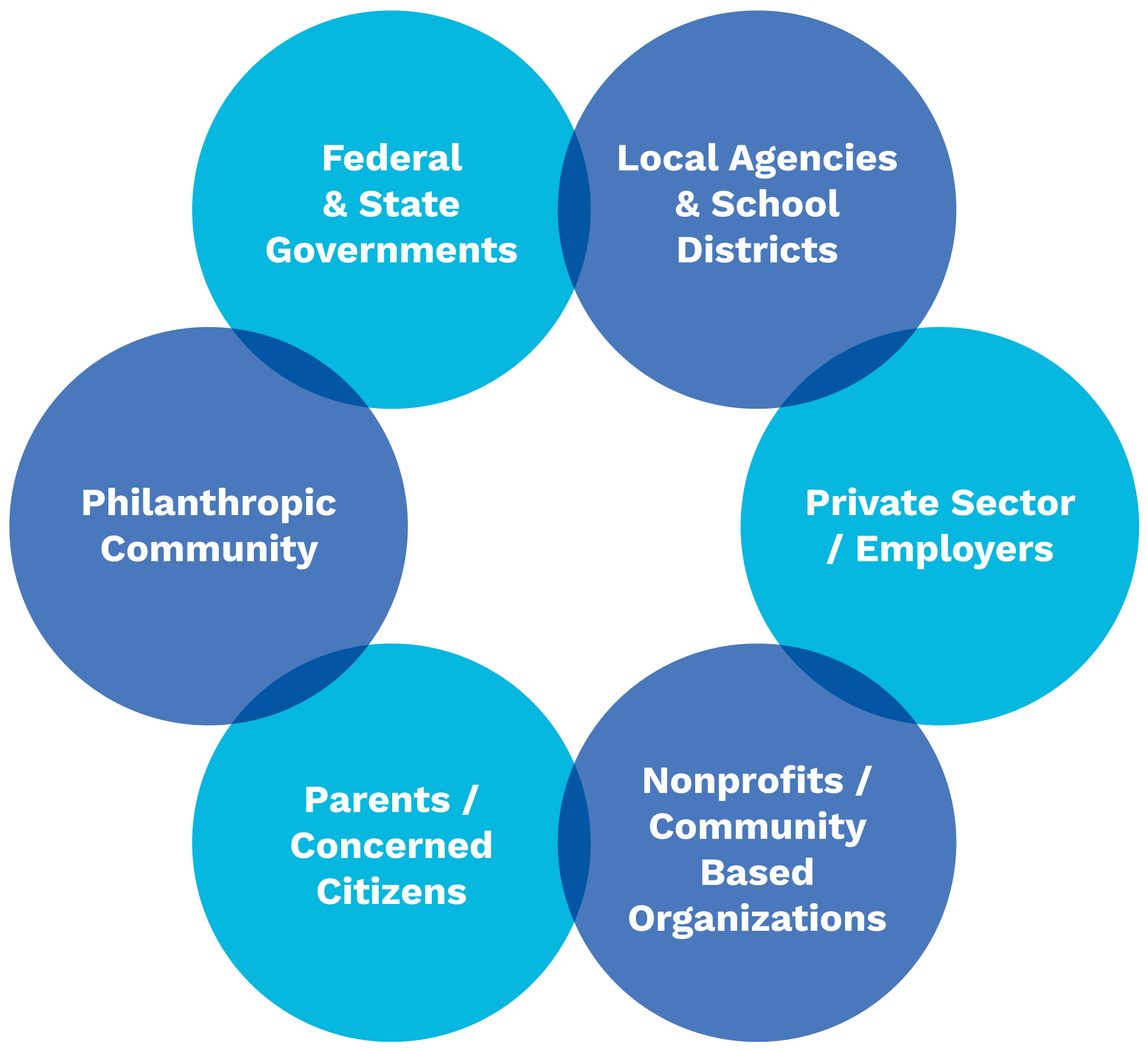What can San Diego do?
The good news is, employers, policymakers and funders want change and there are opportunities for local action.
Addressing the workforce + childcare crisis requires an “all hands on deck approach”

Local Calls to Action
Expand the supply of childcare
Make more jobs family friendly
Leave no state or federal money on the table
Think P-3 (prenatal to third grade)
Serve and support whole families (2Gen)
Spark innovation
The childcare sector is ready for change
1.
Expand the supply of childcare
Make sure it’s high quality and meets working parents’ needs
To encourage the opening of more licensed childcare options, county supervisors, city councils and local governments can:
Incentivize housing and commercial developers to include childcare space (through relaxed height limits, reduced fees and accelerated approval, for example)
Identify excess buildings and land for new childcare options through public-private partnerships
Rent space to childcare providers at low or no cost
Incentivize employers to provide on-site (or adjacent) childcare
Facilitate the establishment of more licensed home-based childcare programs
Streamline permitting and inspection processes for new, expanding and renovating childcare facilities
Provide low-cost or no-cost facilities financing for new and upgraded facilities
Provide local subsidies for childcare that help working families in the “chasm”
Support the viability of childcare careers through wage subsidies and career development (it won’t help to build more childcare if there are not enough excellent teachers to staff them)
School districts, community colleges and universities can:
Identify excess buildings and land for new childcare and after school options
Include the construction of childcare and after school facilities in capital bonds
Rent space to childcare and after school providers at low or no cost
Maximize the availability of transitional kindergarten and full-day kindergarten
Foundations and philanthropists can:
Make grants to pay for facilities renovations, furniture and supplies
Make grants to pay for feasibility studies for providers considering expansion
Participate in the capital stack for facilities financing through program related investments from endowments
2.
Make more jobs family friendly
Working parents need support from employers (public, business, nonprofit, large, small – all of them)
All of us with employees who are parents can:
Make work hours/schedules as predictable as possible, to enable parents to make childcare arrangements and help families budget (by making earnings more consistent week-to-week)
Provide generous paid-time-off or sick leave benefits because parents need to stay home when children are sick and therefore excluded from childcare and school
Provide (and help employees utilize) dependent care flexible spending account and/or dependent care assistance plans
Provide paid leave for new parents (mothers and fathers), to augment or extend the leave provided by California’s paid family leave program
Explore options for on-site or work-adjacent childcare that is provided at a discount and/or waitlist preference for your employees
Consider part-time and/or flexible hours arrangements for parents of young children
Support workplace lactation beyond the requirements of the law
3.
Leave no state or federal money for early childhood on the table
We need every dollar we can get
California and the federal government recognize the need to invest more in early childhood. As new funding and programs are created, our region needs to capture every single dollar available to us—which we are not currently doing.
Set up new childcare programs co-funded by the Navy to help meet the desperate need for childcare for military and civilian families working at local naval bases by helping providers with start-up costs.
Apply for new state funding for full-day state preschool by helping providers secure facilities for the programs.
Submit lots of applications for upcoming state childcare facilities grants by helping local providers tee-up facilities plans.
Rapidly deploy to families any additional funding from the state for childcare vouchers (the Alternative Payment Program)
Maximize school district offerings of transitional kindergarten and full-day kindergarten so we capture all available state education funding for young children.
4.
Think P-3 (prenatal to third grade)
Link and align early childhood with early elementary to build a continuum of services for families with young children
School districts are major stakeholders in the early childhood system – as recipients of children who have received quality care…or not…and as providers of (or contractors for) preschool, childcare and out-of-school-time care. In addition to the supply expansion role under call-to-action #1, school districts can:
Make every effort to support working parents through easy-to-access before and after school and summer programs, evening and weekend parent-teacher conferences and school events and co-located community services at schools
Maximize provision of Transitional Kindergarten and full-day Kindergarten (which amount to free childcare for working parents)
Build alliances with early childhood providers to support their quality, align curricula and ease the transition from preschool to kindergarten
Advocate for quality early childhood programs as a key strategy to support future school success
5.
Serve and support whole families (2Gen)
Parents need jobs, children need quality care and education, families need homes, healthcare, transportation and more
Low wage working parents qualify for a range of public supports, but the major federal and state funding streams that support workforce development, childcare affordability and child support enforcement are completely siloed. Working parents spend too much time navigating our broken systems. We can decide locally to serve families together instead of children and parents separately. We can:
Streamline enrollment and eligibility so that parents qualify automatically or easily for workforce + childcare
Prioritize parents engaged in workforce development services for childcare supports…and vice versa
Redouble partnerships that support student parents to ensure they finish their degree and secure family-wage employment alongside childcare
6.
Spark innovation
The early childhood sector is ready for change
Thoughtful philanthropy and social impact investments can nurture innovation through actions such as:
Support and participate in advocacy for greater public investment in early childhood
Invest in our region’s systems for helping parents find quality care
Help the early childhood workforce through efforts to improve pay and increase longevity in the field
Fund transition and transaction costs so that quality providers can expand to serve more families
Help existing providers improve their quality through facilities investments and other changes that will result in better child and family outcomes
Foster networks and alignment to ensure continuous learning and efficient use of resources
Join The San Diego’s Foundation’s Early Childhood Education & Development Initiative
Acknowledgments
A special thank you to YMCA Childcare Resource Service (YMCA CRS), San Diego’s childcare resource and referral agency, for their input and for sharing important data for this report.
Additionally, we would like to thank the parents and key stakeholders that took the time to provide valuable input into our research and this report:
- Alethea Arguilez, First 5 San Diego
- Laura Dietrich, University of San Diego
- Deona Dorsey, San Diego Workforce Partnership
- Kim Flowers and Staci Schultz, Neighborhood House Association Head Start
- Bryanna Fornerod, Department of Child Support Services
- Alana Kalinowski, 211 San Diego
- Robin Layton, Educational Enrichment Systems, Inc.
- Kim McDougal and Laurie Han, YMCA Childcare Resource Service
- Brenda Quezada, South Metro Career Center
- Rick Richardson, Child Development Associates
- San Diego Area Parents: Brent, Clay, Charlene, Famo, Lisa, Stephany, Suley
Primary report authors: Laura Kohn, San Diego Workforce Partnership; Rebecca Alvarez, NP Strategies; Melinda Chiment, NP Strategies
Report design: Ashley Lewis Design
This report was produced through generous funding and in partnership with the Early Childhood Education and Development Initiative at The San Diego Foundation, led by Katie Rast.


